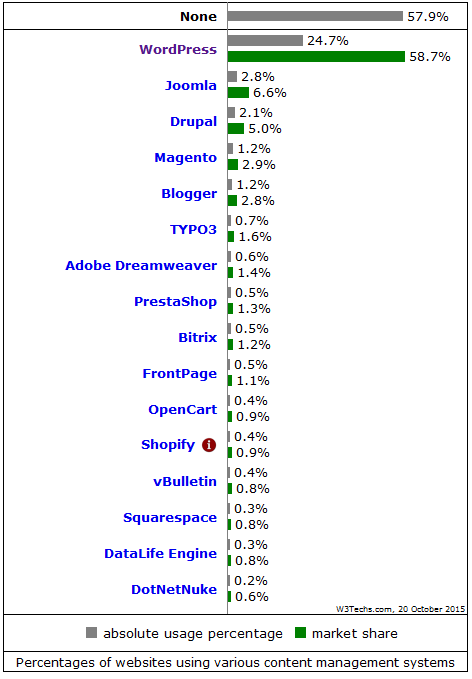Choosing the right CMS for your business:

Social Media Marketing Experiement
October 16, 2015
ECorporate.co animates winning entry for online safety cartoon competition
September 6, 2018Websites don’t have to be complicated bits of code spread over many files, scattered all over your server. They can be a lot more ‘sexier’ then that!
Over the last decade the development effort has been focused on creating systems that give the power to the end user. The ugly (or beautiful if you are slightly geeky) code has been put inside tools and apps and users can now focus on the design elements of their website. Even non-technical users can create breath-taking websites.
CMS is the short for ‘Content Management System’, it’s essentially an sophisticated bit of program where the user only has to worry more about the design and content that is going on the website rather than the coding itself. Using standard set of rules anyone can create wonderful looking websites!
If you are thinking that’s too good to be true – you are probably right! Although you don’t need technical knowledge of coding you still need to understand the way CMS works for making an impactful and efficient website, however that is way easier than learning or acquiring knowledge for programming. For example it’s more like learning to drive a car rather than creating it and then driving, if that makes sense J
Which CMS?
Different CMS systems out there that cater to different requirements – from hosting a basic blog to building a big ecommerce website (you may be surprised to know that eBay is built on a popular CMS). So with all these CMS’s which CMS do I use? Which is most popular? Popularity doesn’t mean it’s the best, but it certainly means it’s good. You can find some of the top CMS in the joining table.
By this table it’s quite easy to see WordPress is by the far the most popular, this is due to its simplicity which allows the average user to build and create a website. It is also interesting to note that these are only some of the CMS systems out there, thus choosing the right system is critical to the success of your venture and the best way to do this is to choose a leading CMS. We have chosen to compare the top 4 popular CMS systems as it is most likely to be the choice for most websites.
If you are thinking that CMS systems aren’t for you – don’t be silly! There are a lot of different CMS systems out there and there is bound to be something that can meet your needs successfully.
ECommerce CMS:
With the rise of ecommerce, specialized CMS like Shopify and OpenCart have arisen which provide an pre packaged solution for shopping websites. These come with pre loaded features such as:
- Ability to make coupon or discount codes with a simply click
- Integration of daily blogs to help with attract more customers
- SEO optimized from the Get-go.
- Auto maintenance your site severs, web hosting, and security.
But a glaring drawback with these systems is that you can’t access the code files, thus limiting you to the features which come as standard with the CMS.
We hope we have been able to help you understand what are CMS systems and hopefully sparked your interest in using a popular CMS for your next website project.
Please feel free to contact our team using the ‘Contact Us’ page for a free quotation on your next web project.




